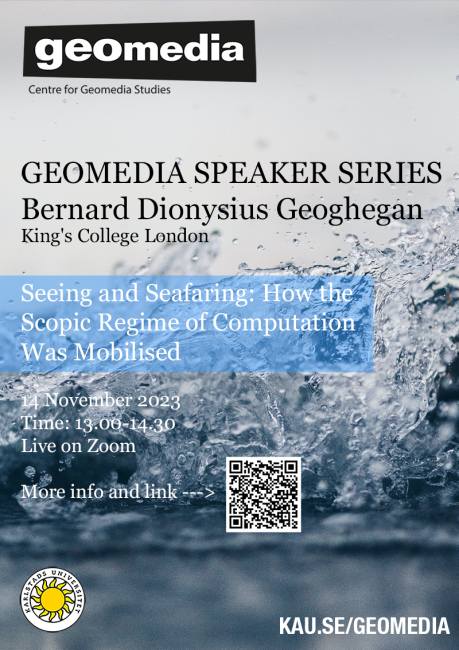Speaker series - Bernard Dionysius Geoghegan

Seeing and Seafaring: How the Scopic Regime of Computation Was Mobilised
Taking a cue from Carl Schmitt’s suggestion in Land and Sea that each of the four elements lends its own distinct perspective on the world, this talk examines the role of water—and more specifically, the sea, the ocean, maritime navigation—in the emergence of modern computational graphics. To-date, scholars have dedicated intensive research to the role of earth, air, and fire in the rise of multimedia and graphical computing—albeit through a host of proxies, such as the role of aerial bombardments, nuclear ballistics, smart bombs, and underground bunkers in the rise of digital computing. But what about water? Following the lead of writers including Margaret E. Schotte and David Mindell, this talk aims to add to the elemental mix, by examining how 18th and 19th century maritime navigation mobilized—by means of instruments including almanacs, logbooks, and chronometers—computational perspectives on the graphic rendering of time and space.
DIGITAL SEMINAR ON ZOOM
14 November 2023
13:00-14:30
Bernard's presentation will be followed by a response from Pablo Abend, current Ander Visiting Professor in Geomedia Studies, and a Q&A and discussion
Bernard Dionysius Geoghegan is a media theorist and historian of technology teaching in Gothenburg and London. An overarching theme of his research is how “cultural” sciences shape—and are shaped by—digital media. This concern spans his writing on the mutual constitution of cybernetics and the human sciences, ethnicity and AI, and the role of mid-twentieth century military vigilance in the development of multimedia interactivity. His attention to cultural factors in technical systems also figured in his work as a curator, notably for the Anthropocene and Technosphere projects at the Haus der Kulturen der Welt.
Pablo Abend, our current Ander Visiting Professor in Geomedia Studies, is a professor of design theory at Burg Giebichenstein University of Art and Design in Halle, Germany. Prior to this role, he served as the scientific coordinator of the interdisciplinary research school "Locating Media" at University of Siegen. This research school had a strong focus on investigating location- and situation-specific media processes by means of location- and situation-specific methods.

